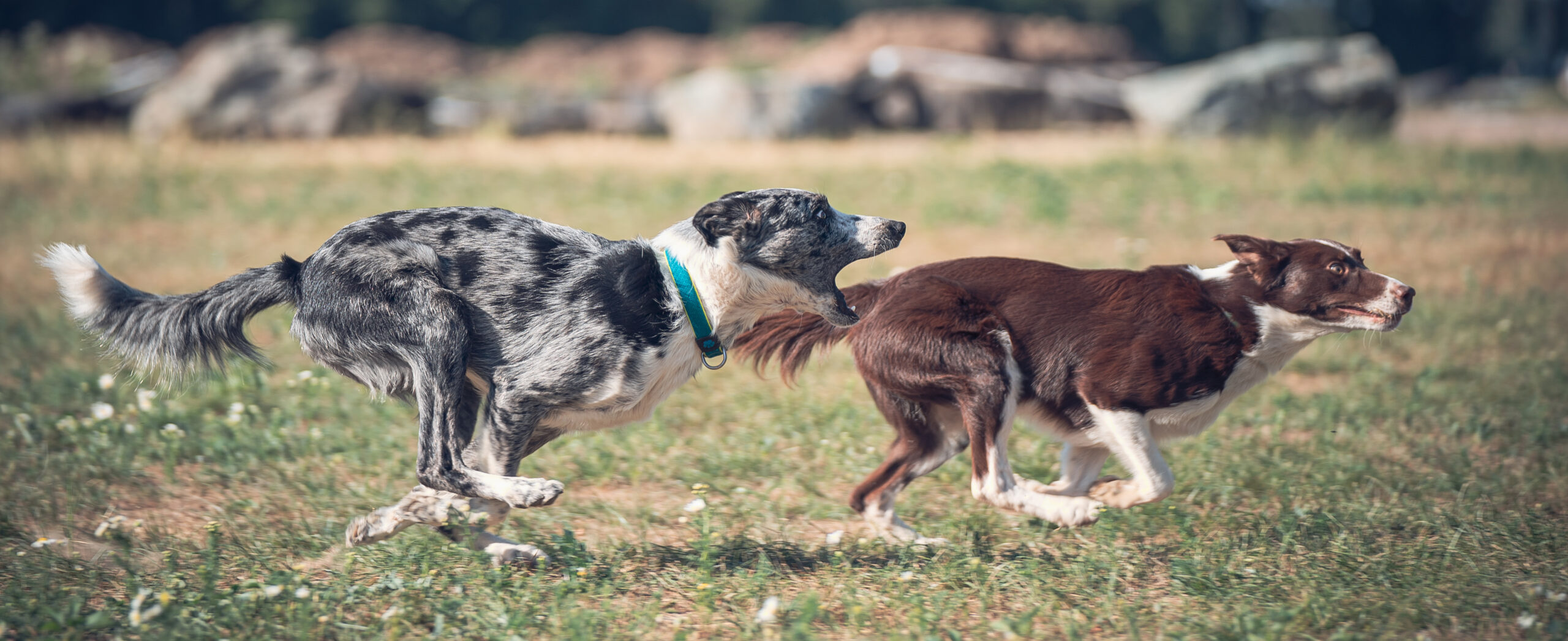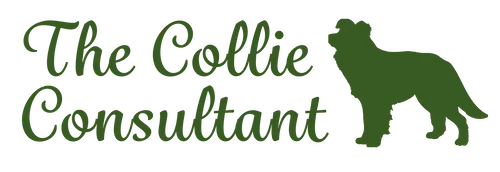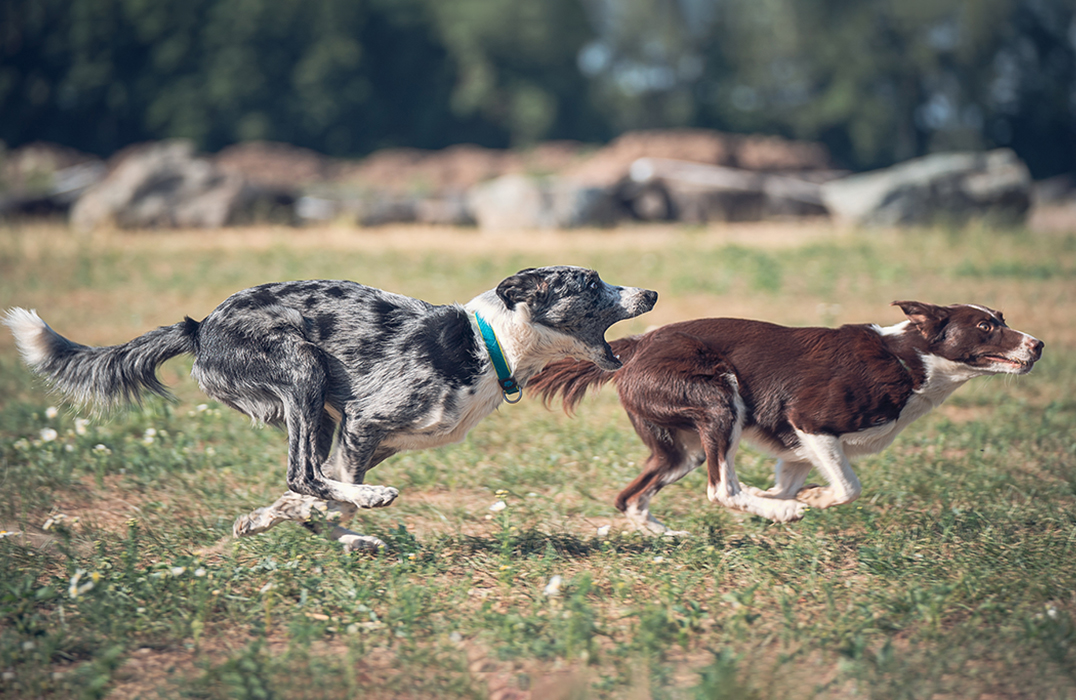
Border collies have a strong predatory instinct, and it’s this drive that makes them ideal for herding sheep. They rarely actually kill the chased object, they don’t have the final “kill” element of the predatory response – they are more driven to stop movement. When first introduced to sheep, most border collies will instinctively hold the sheep to the handler by going round to the opposite side of the flock. The sheep stand still, trapped between the dog and handler.
Because of this strong herding drive, border collies find it very difficult to resist anything that moves. Movement draws them in, and they have an instinctive desire to watch and get to the other side of the moving object and stop the movement. Unfortunately for border collies, sheep are the only things that will be held to a handler. Most things, such as cars, rabbits, squirrels, cats or children, don’t behave in the same way as sheep, which results in our collies having to chase things instead.
As with all training and behavioural problems, PREVENTION IS FAR BETTER THAN CURE!
The best way to stop your collie from chasing things is to ensure that they never get the chance to practise the behaviour.
My collie puppy, Flo, is 18 months old. We live in a rural area and regularly encounter wildlife. After bringing up 6 border collies, I have finally learned that:
· It’s unrealistic to expect a collie puppy not to chase a moving object if it appears nearby
· It’s unrealistic to expect most border collies to come when called once they are in chase mode.
So, Flo has stayed on the lead and will stay on the lead until I am completely confident that she won’t chase wildlife. However, the SECOND I see an animal and I can see that she has seen it, I produce a handful of the most tempting, high value treats, so tempting that they out-trump the moving object! By doing this, we’re aiming for the dog’s first reflexive reaction, on seeing a moving animal/car/child, to be to turn back to us for their handful of high-value treats. A much better response than taking off after the moving item, a risk to themselves, the moving animal, and other road users if you happen to be near a road.
While out on a walk yesterday, we had a breakthrough! Flo saw a hare run from cover almost right under her nose, and her first instinctive response was to turn back to me for her handful of treats. Esther, now 3 years old, and off lead, also had the same response. This is a sign to me that Flo is almost ready to be let off the long line and can be trusted not to chase. But it’s taken 18 months. With Esther, it was even longer. But it will be so worth it because now I can walk my dogs anywhere, safe in the knowledge that if a hare or squirrel pops up in front of them, or a deer takes flight, their first thought will be “Oh, there’s a hare – that means Mum has treats!”.
If a dog is never allowed to practise a behaviour, it won’t become that dog’s way of dealing with that situation. Flo has no idea that she can chase animals while we’re out walking because she has never been allowed to do so. By investing this time in training and keeping her on the lead early on, I am setting us up for a lifetime of happy, relaxing walks.
So much of raising a collie puppy is about what TO do and what NOT to do so that we are always setting them up for success and saving so much time compared to trying to sort out problems in the long run. Collies learn so quickly, which is why it’s even more important than it is with other breeds, to ensure that we are teaching them the right things and not allowing any unwanted behaviour to become a habit.
For more help with recall, please visit our recall training page (https://collieconsultant.co.uk/border-collie-recall-training/)

